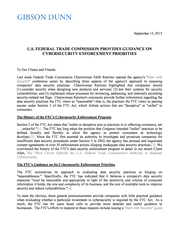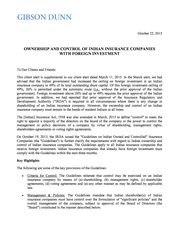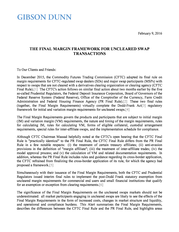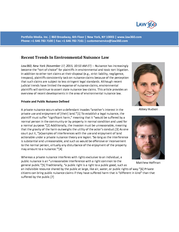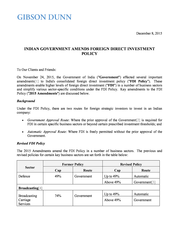Description
Orange County
Nicola T. Hanna (+1 949-451-4270, nhanna@gibsondunn.com)
San Francisco
Thad A. Davis (+1 415-393-8251, tadavis@gibsondunn.com)
Marc J. Fagel (+1 415-393-8332, mfagel@gibsondunn.com)
Charles J.
Stevens (+1 415-393-8391, cstevens@gibsondunn.com) Michael Li-Ming Wong (+1 415-393-8234, mwong@gibsondunn.com) Winston Y. Chan (+1 415-393-8362, wchan@gibsondunn.com) © 2016 Gibson, Dunn & Crutcher LLP Attorney Advertising: The enclosed materials have been prepared for general informational purposes only and are not intended as legal advice. 30 .
Stevens (+1 415-393-8391, cstevens@gibsondunn.com) Michael Li-Ming Wong (+1 415-393-8234, mwong@gibsondunn.com) Winston Y. Chan (+1 415-393-8362, wchan@gibsondunn.com) © 2016 Gibson, Dunn & Crutcher LLP Attorney Advertising: The enclosed materials have been prepared for general informational purposes only and are not intended as legal advice. 30 .

